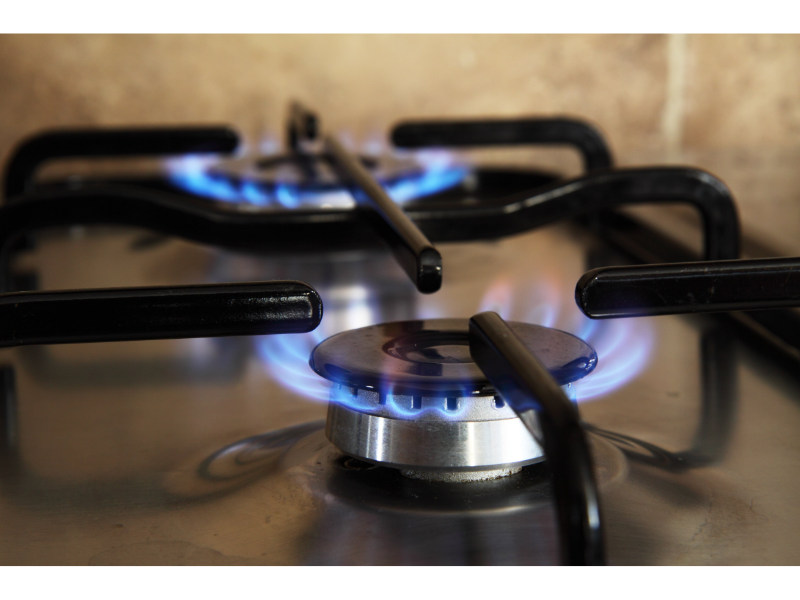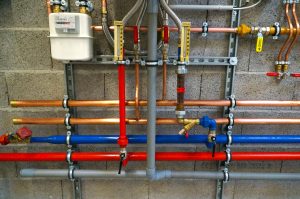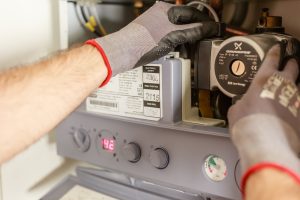Many homeowners across the United States often have a gas stove in their kitchen. They’re usually much easier to use than an electric stove top and can heat up much faster. With a stronger power capacity and a higher durability, gas stoves can be much more fun to cook on than an electric range.
However, since gas stoves use a connection to your home’s gas line for a fuel source, there can be chances where you might suspect a possible gas leak.
Though gas stoves are typically safe to use and won’t get damaged as easily, if you believe that your stove is leaking, you need to take action quickly. Natural gas is incredibly dangerous if it isn’t used safely, which makes gas leaks deadly if not found quickly. The gas is flammable and can cause an explosion if it isn’t lit under specific parameters.
The only issue is that it can be rather difficult to find out whether or not your gas stove is leaking and call a technician in time.
That’s why we’ve created an expert guide on how to check for a stove gas leak and how you can go about helping your technician fix your leak. While there may be ways to fix the issue yourself, it’s highly recommended that you call our team at Clover Contracting to get it repaired as soon as possible.
Check the color of your flames
One of the ways you can check to see if you have a stove gas leak is to check what color the flames are. Natural gas is typically colorless and you won’t be able to tell where the gas is leaking from – or even if it is leaking. That’s where your stove can come in handy.
When your gas stove is working as it should be and your gas connections are all properly fitted and intact, your stove’s flames should be blue. On the other hand, a red or orange flame is a sign you have a leak since there’s a low chance that your house or stove is low on natural gas.
The odd red flash in your stove’s otherwise blue flame isn’t an issue, but if it stays a solid, consistent red or orange, you more than likely have a gas leak.
Check for any odd smells
The most common way as to how to check for a gas leak on the stove in your home is if you smell a gas-like odor in certain rooms.
In order to make sure that home and business owners are aware of when they have a leak somewhere in the building, gas companies have since been adding mercaptan to the gas to make it easier. Without the addition, the natural gas is just as odorless as it is colorless, increasing its danger.
The mercaptan mixed into the natural gas piped into our homes adds a particularly nasty smell that many have said to smell like rotten eggs or sulfur. Since the stench would drastically stand out among the likely more pleasant smells of your home or the gas stove smells like gas when off, the building’s occupants are more than likely going to notice it and call the gas company or a technician to find the leak.
Make a mix of soap and water
If you’re not quite willing to place your complete trust and evidence of a leak in your senses, there are a few good ways to check with items. One of the more classic ways to check for a gas leak from stove burner systems is to use a mixture of soap and water. Many people prefer to use a mix of 50% water to 50% liquid soap and pour that into a spray bottle
To check out where leaks might be, spray the solution over an area you suspect a leak might be in. If – after leaving the mixture there for some time – no bubbles form on your stove top, clean it off and try another area. However, if you do see bubbles start to form, that’s a positive sign that the leak is there. Call Clover Contracting or your gas company for help right away.
Pay attention to any noises
Another simple way to learn how to check a stove for a gas leak is to pay attention to any noises coming from your stove. If you’re finding that there’s an odd whistling sound whenever you get close to the stove, there’s a chance that there’s a gas leak. The whistling sound is often also a sign that your gas leak isn’t a small problem as well. Call a technician to get the issue solved as soon as possible
Use a leak detector
A more professional and guaranteed way to find out if you have a gas leak is to invest in a leak detector. With a good detector, move it around your stove or the gas range to check. If there is in fact a leak, your leak detector should set off an alarm and display a reading on a screen. This works especially well if you use another method to check and want to make sure that there is a leak.
There are many gas leak detectors that aren’t overly pricey as well, making this investment a great idea. It can be a highly reliable source of detecting where a leak can be found, whether it’s from your gas stove or somewhere further down in your home or business’ gas lines.
For further reliability, you can also get a recommendation from your gas company for a good leak detector. From there, all that’s needed is choosing a model that’s within a fair price range.
Takeaway
If you find a stove gas leak in your kitchen, it’s incredibly important to call a technician or your gas company as soon as you can. Natural gas is a dangerous substance if it isn’t under control and can cause all sorts of harm. While your gas stove is highly durable and more than likely won’t break or cause leaks frequently, it’s important to get its connections and your piping checked regularly to prevent any potential issues.
For both gas line repairs and home appliance maintenance, contact us at Clover Contracting for quick and reliable service.




